‘Three Billboards’ Shows The Anti-Heroine Is Finally On The Rise
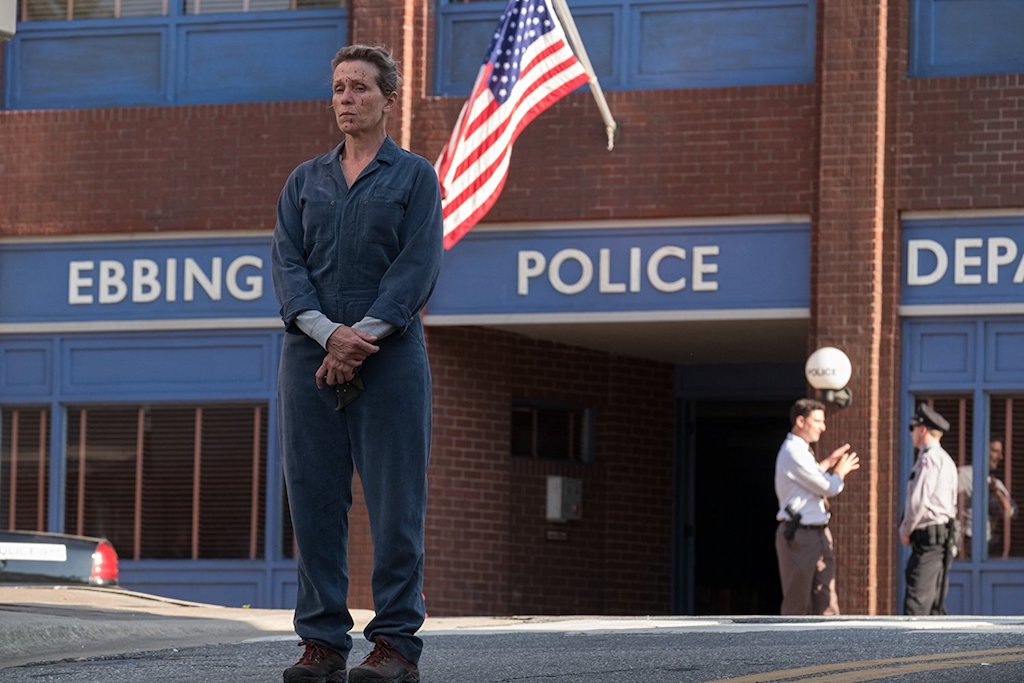
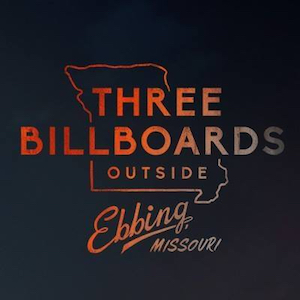
A blisteringly original black comedy starring Academy Award-winner Frances McDormand, who delivers the most universally acclaimed performance of the year.
“This is what is so rarely said about unlikeable women in fiction – that they aren’t pretending, that they won’t or can’t pretend to be someone they are not. They have neither the energy for it nor the desire.”
– Roxanne Gay, Bad Feminist
Anyone who keeps up with at least a fraction of the world’s popular culture and current affairs knows challenging women are nothing new: they’ve been around as long as womanhood itself. Hillary Clinton is one – some may contend her losing the 2016 presidential election was partially due to this fact. As a writer who challenges the masculine status quo in her essays and fiction, Roxanne Gay is one as well. There’s a good chance if you’re female and you’re reading this piece, you’re a challenging woman, too. In 2017, women who buck the trends and yell and scream about not fitting into a prescribed notion of femininity are everywhere, as they should be.
As real-life challenging women are slowly but surely amassing mainstream reverence for all the right reasons, in a not altogether surprising case of art imitating life (and vice versa), we’re seeing more challenging female characters on screen than ever before – and audiences are loving it.
Since the ’90s, writers for film and television have taken part in a re-imagining of what a female protagonist should look like. Representations of a new kind of female character are flooding our stories onscreen and off. It’s how we’ve ended up with Frances McDormand as a serious contender for the 2018 Oscar award for Best Actress for her role as Mildred Hayes in the cinder-black comedy Three Billboards Outside Ebbing, Missouri.
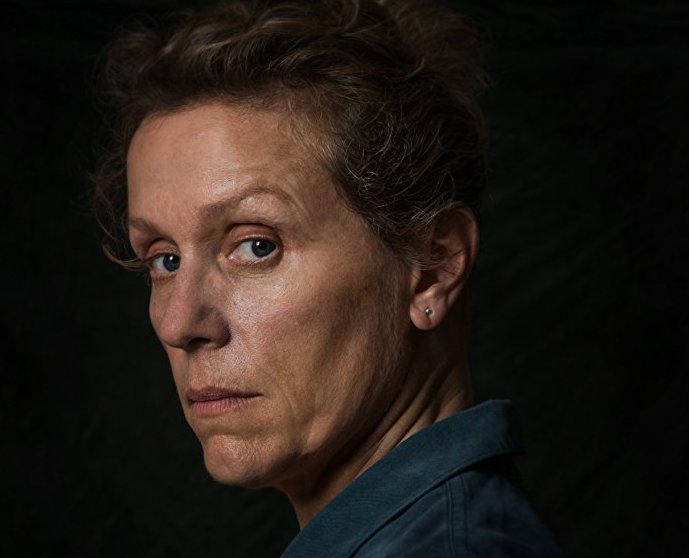
So, What Is An Anti-Heroine?
So, what exactly makes someone an anti-heroine on film? A ‘catch-all’ definition is this: someone who does bad shit for good reasons. A woman who’s flawed, but in the most relatable and almost inspiring of ways (because aren’t we all?), and whose decisions and development unfold on screen independently of their male counterparts.
They’re the Thelmas and the Lousies, the Beatrix Kiddos. We’re now saying buh-bye to the Disney princesses from our youth, who were (and remain; sorry Emma Watson/Belle) almost impossibly virtuous, beautiful and small-waisted. The anti-heroine of today is messy, gritty and imperfect in a more ways than one, often navigating her life with a moral compass that could probably use a service.
We don’t love that Veronica from Heathers literally kills a whole bunch of people, but her reasons for doing so resonate with us (in any case, who DOESN’T love our girl Wynona, even when she’s a murderous high-schooler?). Gone Girl’s Amy Dunne is arguably batshit, but is there anyone who hasn’t thought of a real-life application for her ‘cool girl’ monologue at least once since hearing it for the first time?
It’s Complicated
Martin McDonagh, the writer and director of Three Billboards, knows how to write these anti-hero characters for a contemporary context.
Mildred Hayes is a foul-mouthed and endlessly complicated grieving mother, pushed to the limits of her morality by an ineffective and hapless police department, staffed by incompetent cops who’ve failed to turn up any leads in her daughter’s seven-month-old murder case.
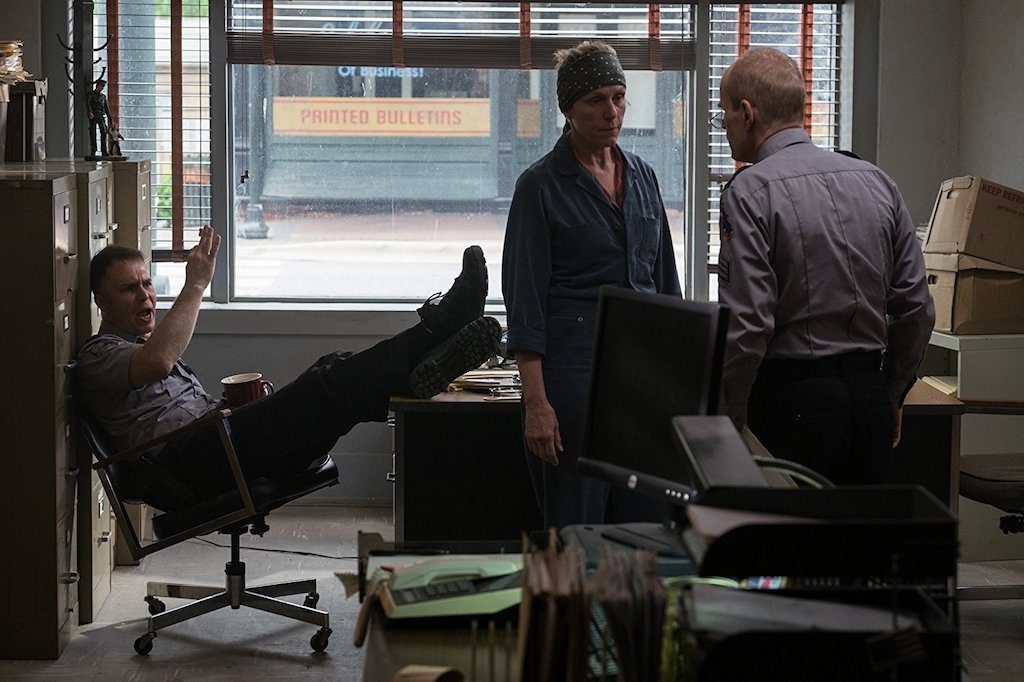
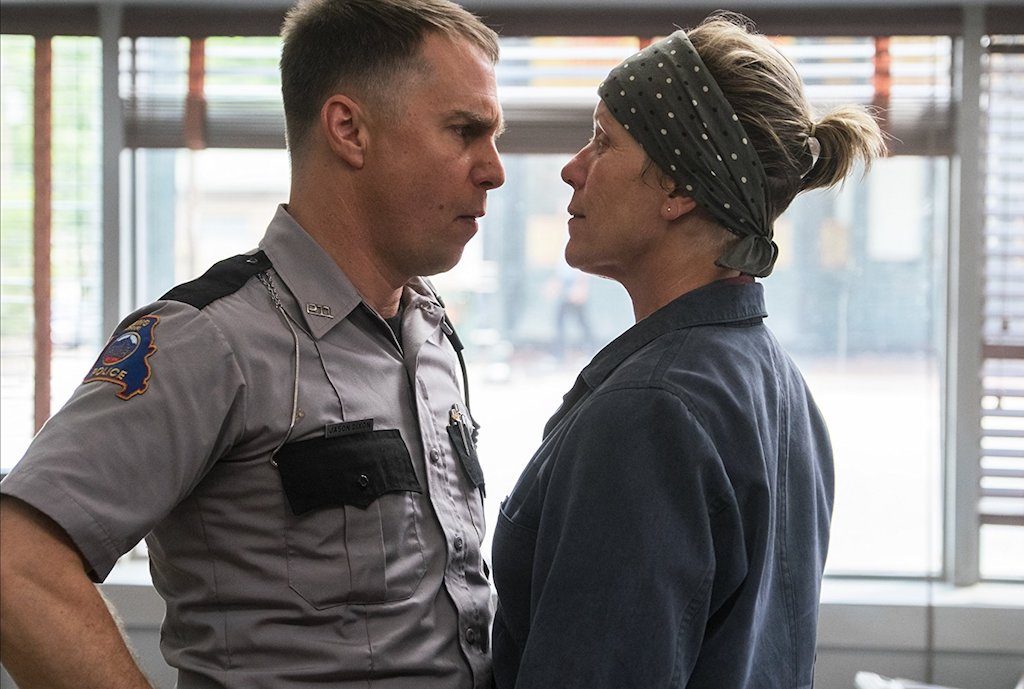
As the film’s protagonist, Mildred Hayes is as active and magnetic as they come – compelling in her decision to take matters into her own hands, and driving the narrative of the film single-handedly. She’s also really, really funny. The audience admires Hayes despite her difficult-to-ignore flaws; viewers find themselves rooting for her the whole way, even when her rage takes her down a path towards questionable behaviour. In short, Mildred Hayes is a total badass.
She commissions three giant billboards from the sole advertising company in Ebbing, implicating the town’s much-loved Chief Willoughby in the perceived miscarriage of justice.
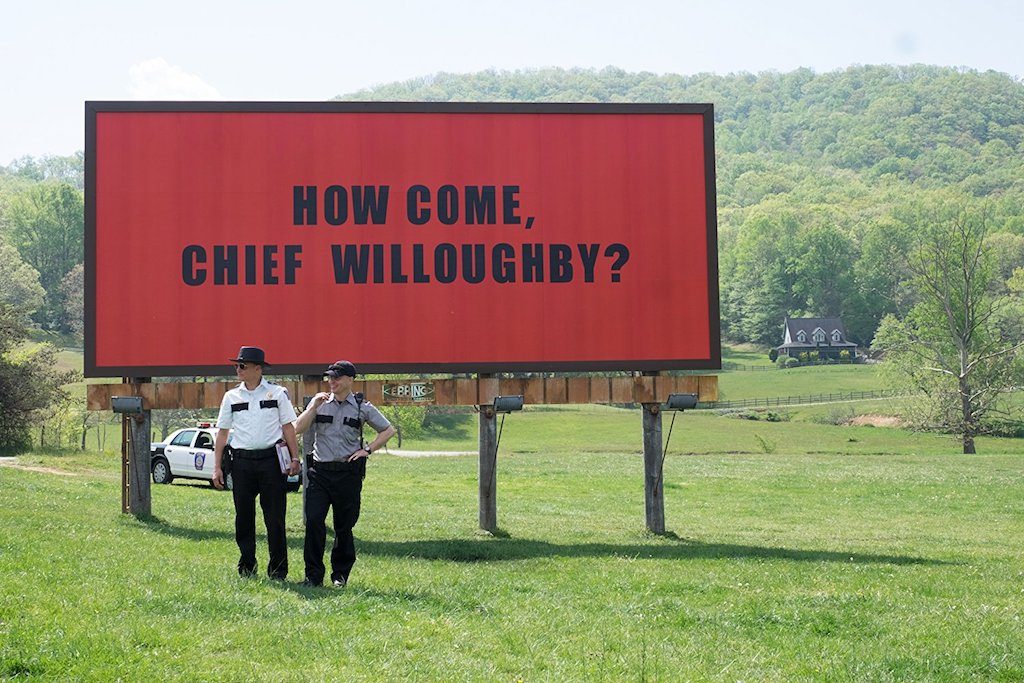
Females No Longer Have To Be 100% Likeable
Mildred’s rise to heroism is fraught, to be sure. It’s a wholeheartedly selfish pursuit – based on her personal desire to get justice for her daughter – and she doesn’t stop to think about who she’s hurting along the way (sorry, Peter Dinklage; less sorry, Sam Rockwell).
When she takes her crusade as far as all out with Molotov cocktail-fuelled vandalism, she fails to consider the consequences and ends up further behind in her quest to find her daughter’s killer – she nearly incinerates the case file in an attempt to burn down the police headquarters.
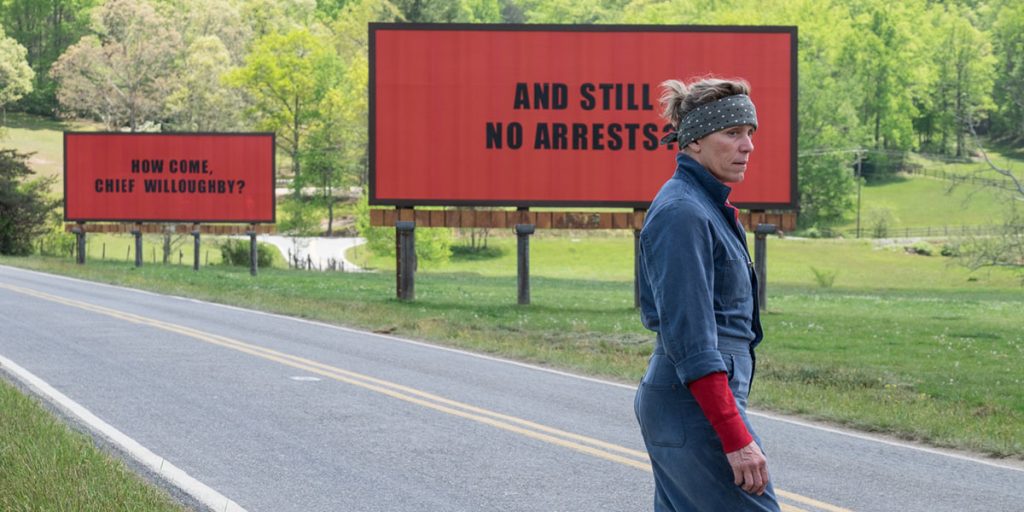
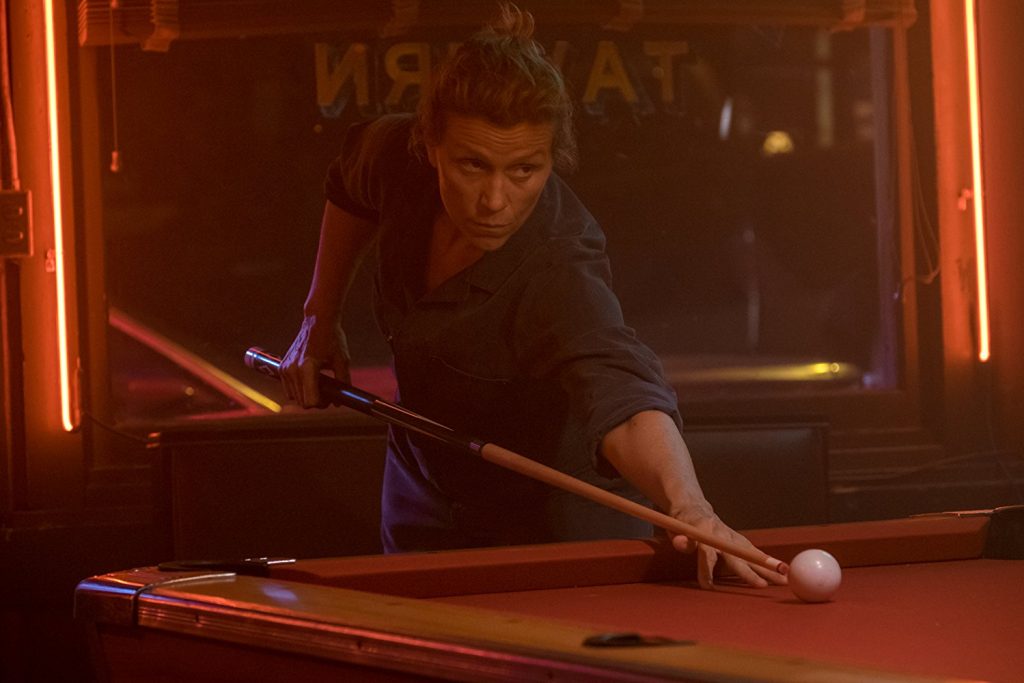
Even still, we like Mildred Hayes; she’s tenacious and funny and we want her to win. Her mishandling of emotions, her doggedness and her astute aversion to anything that resembles bullshit are all things that speak directly to an audience of people who may not behave in any way differently if posed with the same challenges. Besides, wouldn’t we all want to knee a twerp teenager in the groin, if we had the chance? While the rules of society may inhibit the rest of us from doing what we want all the time, Hayes is brave enough to go there – she doesn’t care what anyone else thinks. And that’s precisely why audiences can’t get enough of her.
Three Billboards is a poignant snapshot of dealing with adversity in a small, mid-west town, where everyone knows what your grief looks like despite how private a person you are.
The anti-hero trope in film and TV is a familiar one – think Walter White in Breaking Bad, or Jason Bateman’s heavily conflicted character in Ozark – but the female anti-hero is only recently starting to rival her male counterparts in terms of screen presence and audience acceptance.
While audiences may have struggled to come to terms with a “defective” female taking the limelight in the past (critiques of Sex and The City reveal that not everyone is comfortable seeing four women digressing on nonlinear, unconventional sex and love lives on screen), in 2017 people are clamouring for more challening women on screen. More women that look like Hillary Clinton and Roxanne Gay. More women who look like them.
As we barrel towards awards season and into next year, may the female anti-hero reign supreme.
—
Don’t miss Three Billboards Outside Ebbing, Missouri, in cinemas on New Year’s Day.
(All photos: Three Billboards Outside Ebbing, Missouri / 20th Century Fox)